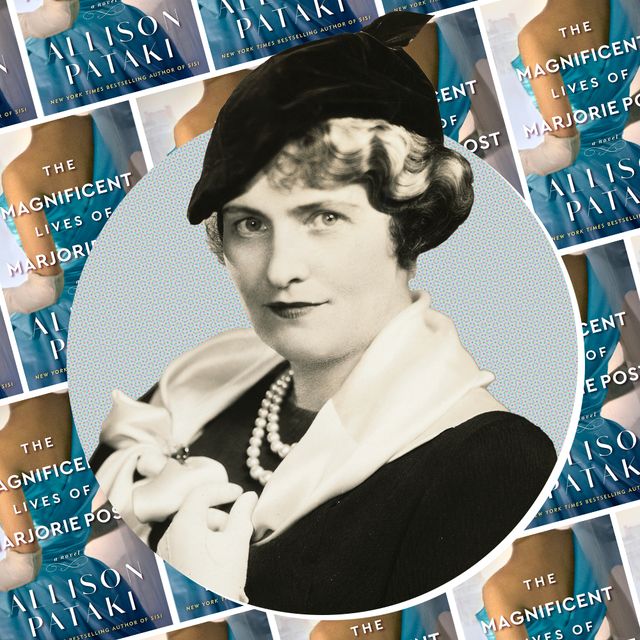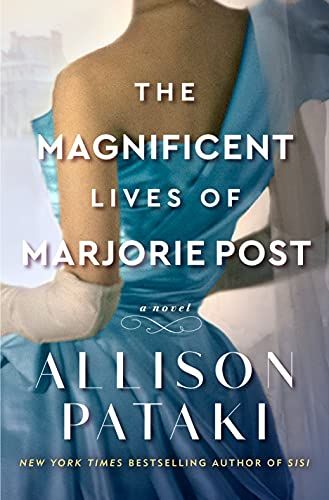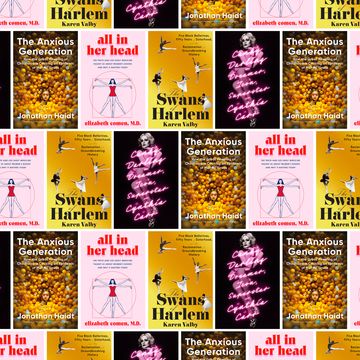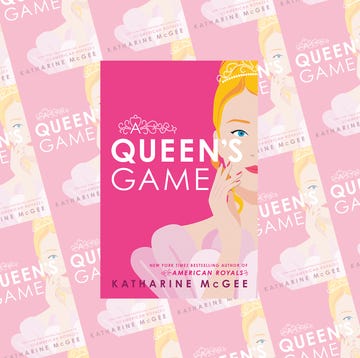“With historical fiction, the most outlandish, outrageous, are bizarre moments are always pulled directly from the history,” says Allison Pataki, “because history gives you the raw material that you just couldn't make up.”
She’d certainly know. Pataki’s new novel, The Magnificent Lives of Marjorie Post, is her sixth work of historical fiction, and it’s chock full of stranger-than-fiction moments. The book charts the course of its title character’s life from her youth in Battle Creek, Michigan—where her sickly father was a patient of Dr. John Harvey Kellogg’s famous sanitarium—through to her life as one of the richest women in the world, thanks to her father’s founding of the company that became General Foods, and in no small part her own brilliant mind for business. Pataki’s story doesn’t skimp on Post’s dazzling adventures—there’s big money, big houses, and big jewelry at almost every turn—but it takes pains to present a private side of Post and establish her as more than just an heiress.
For Pataki, that meant combing a novelist’s skill for storytelling with a historian’s eye for detail. “I owe an incredible debt of gratitude to all of the historians and archivists who curate and provide that material,” she says. “I get the fun part, which is telling the story with those ingredients. What's particularly interesting about Marjorie as the subject, as opposed to some of the other female figures I've written about who’ve been dead for 300 years, is that with Marjorie Merriweather Post, it's recent history. Her last home, Hillwood, is still a museum that you could walk in. And it is, precisely, how she lived in it; even the table is set the way she would've set it for a dinner party.”
But Post’s not just any historical titan. She was larger-than-life in her own time—"She didn't follow trends, she set them,” Pataki notes. “During the Roaring Twenties, the rumor was that perhaps she and E.F Hutton, her second husband, were part of the inspiration behind F. Scott Fitzgerald's The Great Gatsby”—and her experiences still impact the world we inhabit today. She lived in Moscow in the 1930s when her then-husband, Joseph Davies, was ambassador and developed relationships that continue to inform international relations today. And, of course, she built Mar-a-Lago, the Palm Beach mansion where Donald Trump now lives, as her own private getaway in 1927. Even her family business is still a behemoth, raking in a reported $3.14 billion in 2021.
The story Magnificent Lives tells is organized around the loves of Post’s life, from her close relationship with her father to the four men she went on to marry. “It's mind-boggling to see that over the course of her life, she had these four marriages that were each dramatic and tragic in their own way,” Pataki explains. “That was an important part in the story for humanizing her and showing that you can have everything in the world, but everyone's heart gets broken. For me, seeing these four marriages and the dissolution of them, the true love story that had to run throughout this book was that she had to accept falling in love with her own voice identity.”
The book didn’t just find Post becoming comfortable with herself, but also meant Pataki had to develop a relationship with her subject that would sustain years of work. “You have to become obsessed; this has been six years of my life, during which I've been living and breathing Marjorie Merriweather Post,” she says. “I don't know that I've ever written about a subject that I loved and admired as much as I did Marjorie Merriweather Post. She’s very current, and yet times have changed so much since she lived. So, seeing the way Marjorie was a leader, even though all the prevailing currents of society were against her as a woman, you can't help but think that if she were alive now, we'd all want to vote for her for president.”
Adam Rathe is Town & Country's Deputy Features Director, covering arts and culture and a range of other subjects.
















